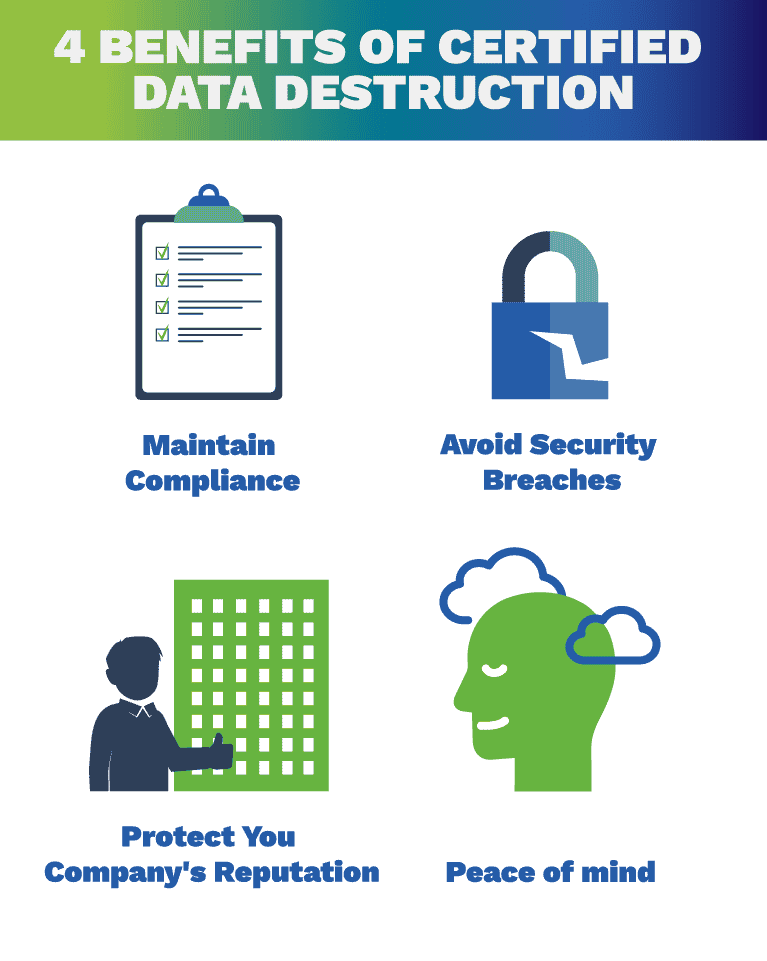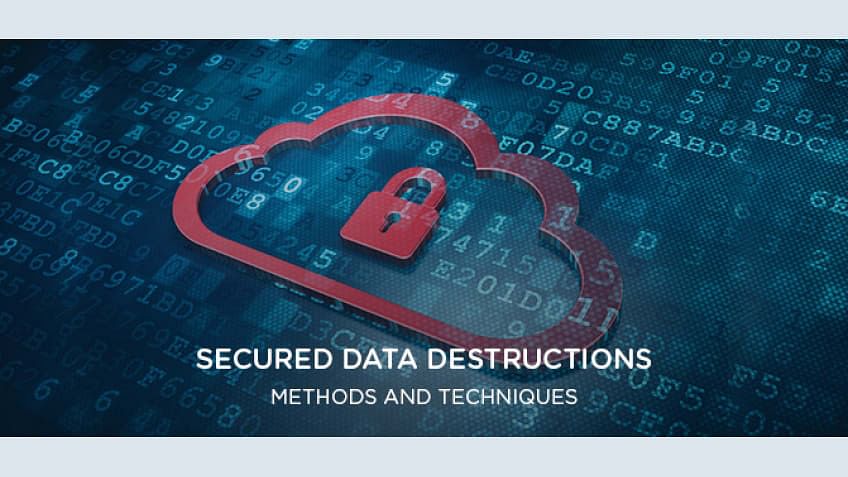How Robust Data Destruction Improves Your Overall Cyber Security Steps
How Robust Data Destruction Improves Your Overall Cyber Security Steps
Blog Article
The Important Nature of Information Damage in Upholding Computer Protection Services and Protecting Against Unauthorized Gain Access To
In an era where data violations and identity burglary are increasingly widespread, the relevance of effective information devastation can not be overstated. Numerous approaches, from information wiping to physical devastation, offer as important safeguards against unauthorized accessibility.
Importance of Information Damage
In a progressively digital world, the value of data damage can not be overstated. As organizations collect substantial quantities of delicate info, the prospective consequences of stopping working to correctly get rid of and take care of of that data end up being progressively serious. Data violations, identity burglary, and corporate espionage position substantial threats, emphasizing the requirement of reliable data damage practices.

In addition, as innovation evolves, so also do the methods whereby malicious stars look for to exploit delicate info. Organizations must stay cautious and aggressive in their data devastation methods to protect versus these developing hazards. By prioritizing information destruction, business not just shield their assets yet likewise foster trust fund amongst stakeholders and customers, demonstrating a dedication to responsible data monitoring and safety practices.
Techniques of Effective Data Devastation
To make sure the irreversible and total damage of sensitive information, companies can utilize a selection of efficient approaches customized to their specific demands. One of one of the most common methods is information wiping, which involves utilizing specialized software application to overwrite existing data several times, making recovery virtually difficult. This is especially useful for disk drives and solid-state drives, where typical removal methods are inadequate.
Another effective method is degaussing, which utilizes solid magnetic areas to interfere with the magnetic domains on storage space media, making the information irretrievable. This approach is particularly suited for magnetic storage space gadgets, such as tape drives and difficult disks.
Physical damage is likewise a practical choice, including the shredding, crushing, or incineration of storage devices. This method assurances that information can not be recouped, making it perfect for organizations taking care of highly sensitive details.

Compliance With Information Security Laws
Organizations should not only concentrate on efficient information destruction techniques however also make certain compliance with information defense regulations that control exactly how delicate information is taken care of and taken care of. Sticking to these regulations is essential for keeping and safeguarding individual data client trust. Regulations such as the General Information Defense Policy (GDPR) in the European Union and the Health And Wellness Insurance Policy Transportability and Responsibility Act (HIPAA) in the USA impose rigorous standards on data monitoring, which include demands for the secure disposal of delicate info.
To attain compliance, companies must implement thorough information devastation plans that line up with these legal structures. This consists of determining information that needs devastation, developing procedures for protected methodsâEUR" such as shredding physical media or utilizing software program that meets market requirements for data wipingâEUR" and keeping detailed documents of destruction tasks. Normal audits should be performed to ensure adherence to these plans and to recognize any kind of possible locations for enhancement.
Failing to adhere to data security laws can result in substantial lawful ramifications, consisting of substantial penalties and damages to an organization's track record. Incorporating compliance right into information destruction methods is not just a legal responsibility however also a critical element of a robust information security approach.
Effects of Poor Information Handling
Poor data handling can lead to extreme repercussions that expand past prompt operational problems. Organizations might face substantial monetary losses as a result of data violations, which typically cause expensive removal initiatives, legal charges, and governing penalties. These economic ramifications can impede and stress resources development, eventually influencing an organization's bottom line.
Additionally, inadequate information handling can severely damage a company's online reputation. Customers, partners, and stakeholders may lose rely on an entity that stops working to shield sensitive information, causing reduced customer loyalty and potential loss of business chances. This disintegration of depend on can take years to reconstruct, if it can be restored in all.
Furthermore, companies can encounter lawful ramifications occurring from non-compliance with data security laws. Such offenses might cause charges and investigations, worsening the financial burden and more tarnishing the company's image.
In the realm of cybersecurity, inadequate data monitoring techniques can create susceptabilities that make systems much more prone to unapproved accessibility and cyberattacks. Eventually, these consequences emphasize the vital importance of applying durable data dealing with procedures to secure sensitive info and preserve business stability.
Best Practices for Secure Information Disposal


First of all, data should be identified according to its level of sensitivity. Sensitive info requires much more strenuous disposal methods, such as shredding physical files and making use of advanced software for digital information cleaning. Utilizing certified data destruction services makes certain conformity with sector laws and i loved this standards.
Secondly, companies must carry out an information disposal policy that mandates regular audits. This policy ought to detail the treatments for data retention and devastation, ensuring that obsolete information is taken care of immediately and safely. Training staff members on these procedures is vital to promoting a culture of security understanding.
Finally, maintaining detailed documents of disposed data enhances liability and offers a clear audit trail. This documentation must consist of the kind of data ruined, the technique made use of, and the day of disposal.
Verdict
Finally, the imperative of effective information destruction is apparent in its function in enhancing computer system safety and security solutions and alleviating unauthorized gain access to risks. Embracing durable methods such as data wiping, degaussing, and physical destruction, alongside conformity with laws like GDPR and HIPAA, is necessary for safeguarding delicate details. Disregarding proper information disposal practices can lead to severe effects, including information violations and lawful effects. Implementing ideal methods in safe and secure information disposal ultimately strengthens organizational integrity and customer trust fund.
In a period where data violations and identity theft are progressively prevalent, the importance of reliable information devastation can not be overstated. data destruction. Data breaches, identification theft, and corporate reconnaissance posture significant threats, highlighting the requirement of effective data destruction techniques
Compliance with laws such as GDPR and HIPAA requireds that organizations implement stringent information protection procedures, including the safe click here to find out more devastation of information at the end of its lifecycle.
By prioritizing data damage, companies not just shield their properties however additionally foster depend on among customers and stakeholders, showing a commitment to accountable data monitoring and security methods.
Organizations should not only focus on effective information damage techniques yet additionally ensure conformity with information protection policies that regulate how delicate information is dealt with and disposed of.
Report this page